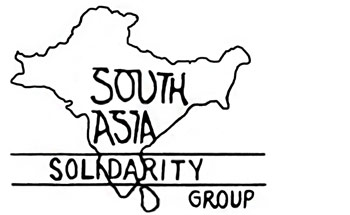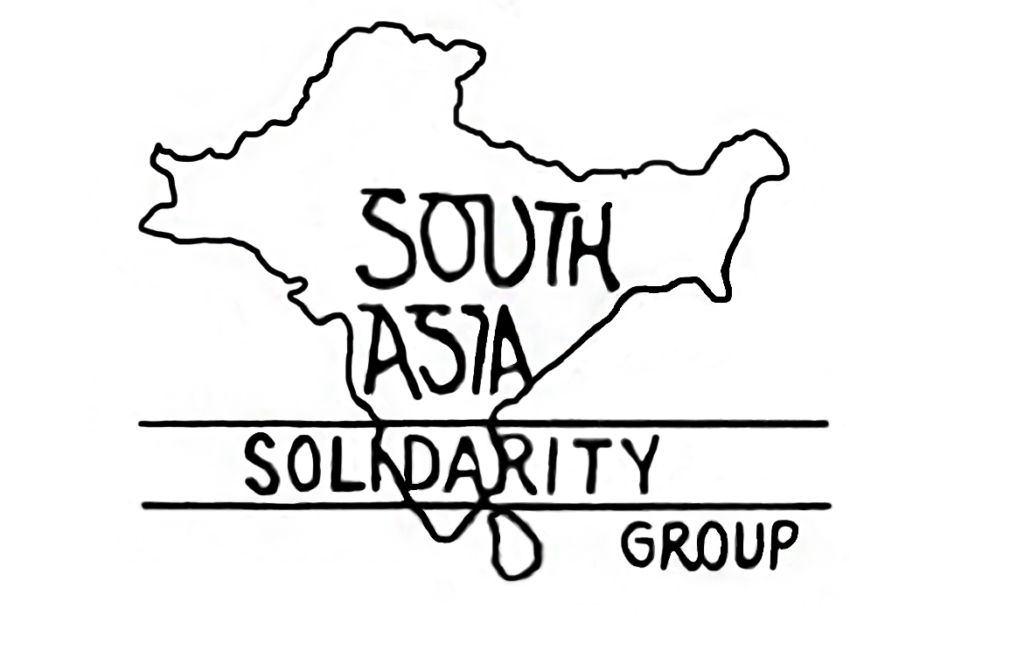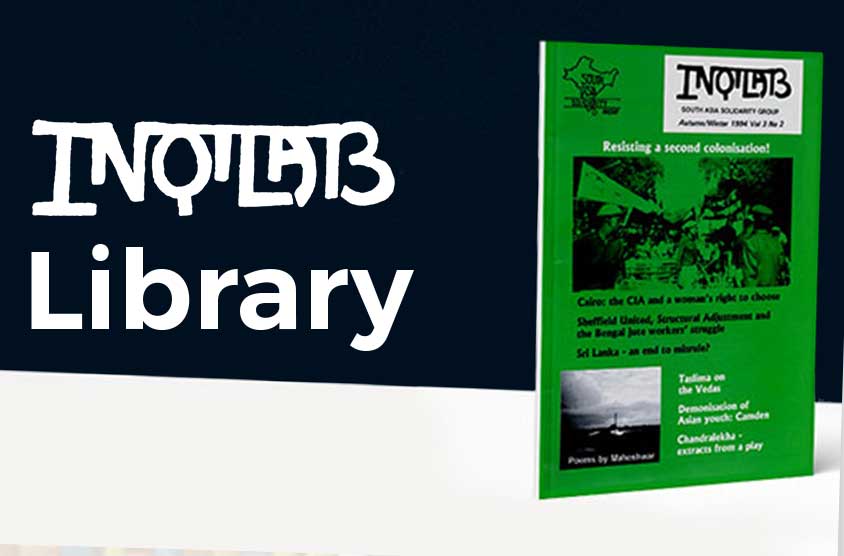NGOs and their position in the Global administration of the empire
- August 13, 2011
- Posted by: admin
- Category: News
Naeem Malik
“The NGO leaders can be conceived of as a kind of neo-compradore group that doesn’t produce any useful commodity but does function to produce services for the donor countries – mainly trading in domestic poverty for individual perks”. James Petras writing in an article titled ‘NGOs in the service of Imperialism’
(In the edition of the Viewpoint, a Pakistani magazine edited by some of the individuals associated with the Labour Party of Pakistan). The founding members of the Labour Party of Pakistan originally were associated with the Militant Tendency in the Labour Party in England. Today the Labour Party of Pakistan is associated with the Fourth International. Viewpoint in the last century was edited by the various left individuals including Tariq Ali’s father Mazhar Ali. Farooq Suleria in the main article, in the recent edition of the Viewpoint, argues that Human Rights and Labour NGOs are some examples of good NGOs. The reality is that these NGOs are precisely the ones who have done most in halting the development of genuine organisations fighting for the disadvantaged in Pakistan.
In preparation for this article I went through the introductions of HRCP’s (Human Rights Commission Pakistan) annual reports from 2002 to 2009 and in none of them I found any reference to US and its violation of human rights, in the context of drone attacks or the abduction of individuals from Pakistan transported to Bagram and Guantanamo. We know hundreds of individuals were picked up in Pakistan and without a judicial process were handed over to US military and than transferred to Bagram and Guantanamo. Terrorism was specifically mentioned in each o f the introductions as a violation of Human Rights. I would have assumed, from a human rights perspective it is the role of HRCP and similar organisations to target state violations of Human Rights more then the criminal acts committed by individuals or criminal gangs. There was no mention of extra judicial killings executed through drone attacks in any of the introductions in the annual reports of the HRCP.
Just as there are no good imperial soldiers, there are no good NGOs. NGOs are there to prepare the terrain in which the interests of the donors can be protected and furthered. In the process the NGO might help a few fishermen, save a poor city girl from being exploited or help educate an orphan but it does all this good only so it can get some credibility to peddle the poison that inflicts the poor. Most of the poor remain unaffected by the good deeds. However, many are adversely affected as a consequence of NGO’s promotion of donor interests. NGOs corrupt the intelligentsia of the recipient country and in actuality halt the development of the recipient socially, economically and politically. Particularly NGOs help keep the recipient country’s institutions weak against the Neo Liberal global empire.
Suleria also argues that it is not the NGOs that have depoliticised Pakistan but the Political Parties have discredited themselves. To some extent he is right. Political Parties have paid more attention to the US administration in ruling Pakistan than to their own Party workers and electorate. This has left the Political Parties discredited and country depoliticised. However, this should have been an opportunity for political activists to mobilise the peoples around genuine peoples’ demands. This did not happen. US also realised the impotency of the Political Parties and actively recruited NGOs to further US interests in the region. NGOs as far as US is concerned have certain advantages. NGOs do not have a constituency they have to answer to and therefore can be more receptive to US demands. They could be used to harness public opinion in which than the local administration might find some of the unpopular policies proposed by the US easier to implement. We see this again and again every time US wants the Pakistan military to launch a military operation within Pakistan some NGO comes out of the woodwork making an argument for the operation. It is not the case of NGOs against military or the ruling Parties, it is all of these, Political Parties, military and NGOs performing their role to meet particular agendas of the donor groups. Each of these, NGOs Political Parties and the Military gets credited by the donor in its own way.
Non Government organisations are, under the Neo Liberal global regime, the preferred method to disburse civilian aid to third world countries by the donor countries, particularly the US. However, it is not the only method of disbursement of aid. Some of the aid is given directly to the military and some though various other state actors. The purpose of aid is to protect donor interest and promote donor objectives in the country and the region. Pakistani NGOs have played this role well, just as well as other state actors receiving the aid. Various NGO organisations played an active role in promoting US perspective in several public political debates within Pakistan, for example on Drone attacks, Kerry Luger Bill, Raymond Davis case etc. Kerry Luger Bill was passed by the Congress in Washington that made aid to Pakistan conditional on Pakistan’s performance in the so-called war on terror. US aid to Pakistan was tied to political conditions posed by Washington. On the face of it, these conditions violated Pakistan’s sovereignty. NGOs and various left organisations argued that sovereignty is a reactionary issue and aid even tied to political conditions should be acceptable. Rayomnd Davis was a CIA operative operating within Pakistan, was arrested having killed two young man, who he claimed were attempting to rob him. The circumstances of the two deaths were very suspicious. However, he was freed and allowed to return to the US without being charged of murder.
Political Parties relying on local constituencies cannot serve the same purpose. NGOs who do not have local constituents to worry about prepare the ground and when these NGOs have created sufficient support politicians can take over. There was the Swat operation that apparently the Pakistan military was not too keen on. Various NGOs came out in support of such an operation and ultimately Pakistan army was able to deploy itself in Swat. Even a video recorded some months before was distributed through NGO’s to make the case for the operation. Similarly, in the debate on the Kerry Luger Bill NGOs once again debated in support of the US position. Aid through NGO’s allow the donor country to neutralise the elite with the ability to coherently oppose US interest and at the same time recruit some of this elite to proactively argue the donor case.
The Western administrations have employed similar strategies in their own countries. For example, when Margaret Thatcher, in UK, faced riots in the inner city areas of England. Her Minister, Michael Heseltine, came up with a policy of co-opting some of the leadership of the inner city revolts by providing them state funded community projects. Pakistani Workers Association in UK, one of the few organisations of the time opposed the state co-option. It advised its supporters to be very careful when engaging with the funded organisations and to keep their politics separate from their employment. The suggestion was sell your labour but not your soul. None were able to keep the two separate. Those who joined the funded organisations ended up compromising their politics as their continued relation was always directly or indirectly, linked with their support for the state agenda. The funding helped maintain peace in the cities for a short period. However, the situation in the inner cities worsened for the ordinary citizens and now most of the funding is also withdrawn. Some of the leadership of the inner city revolts of the 80’s today are directors of various arts or community based projects.
A typical example of the role NGOs have played in Pakistan in the current war on terror is that played by Aryana Institute for Regional Research and Advocacy. Aryana institute has yet to prove its existence beyond a couple of individuals. One of its members from Scandinavia claims to be a Pakhtun with in-depth knowledge of Pakhtun regions within Pakistan. Based on this in-depth knowledge she asserts that the Drone attacks are accurate in their targeting of terrorists and that the peoples in the region welcome drone attacks. Researchers refuse to discuss their methodologies about the research it uses to make such claims. Aryana’s findings than gets quoted widely in so called respected English medium papers in Pakistan. Some of the journalists writing in these papers are themselves linked to various US based think tanks. Professors from Pakistani universities quote the institute when writing articles on Drones as vindication of these attacks. These Professorial articles than get transmitted worldwide and thrown in the faces of those arguing against Drone attacks as a vindication of US policy of using drones in Pakistan. The Aryana institute serves the US cause very well. Whenever the US administration has a difficult argument with the Pakistan Army on the operation of the war, the institute obliges by providing so called expert knowledge on the region in defence of the US position. From US perspective it is cheaper and more effective to buy influence in the region through the NGOs.
Another example is the Quilliam Foundation. The foundation is UK based. Its founding members were associated with Hizb-ut- Tahreer who repented the evil of their ways. One of the founding members wrote a book on his misguided past and managed to get substantial funding. The foundation was initially used to counteract radicalisation of Muslims in UK. The Foundation is heavily funded by the British State and in particular is a main recipient of the fundings allocated through the PREVENT program. The Foundation’s members appear on many discussion shows to help demonise Muslim communities in UK. This foundation is now applying similar techniques in Pakistan. Articles written by members of the Quilliam foundation are printed in respected Pakistani English Papers. According to its website the Foundation regularly sends its team to Pakistan every three months to help in the de-radicalization process. Quilliam intended to use methods employed in Saudi Arabia and Egypt to de-radicalise the Muslim youth in UK. I cannot imagine these methods would have worked in UK. The only youth who were de-radicalised were the founding members of the foundation who directly benefited from the funding. The UK thinking might be that Saudi and Egyptian methods can be easily applied in Pakistan because of the weak human rights. Therefore, they might think of recruiting from London the disaffected youth with enough inducements to implement the Quilliam project in Pakistan. If nothing else the English reading elite can read about the success stories. Quilliam is reputed to have received a grant of £ 1,000,000 from the UK government.
Disbursement of aid through NGOs allows the donor country to recruit sections of the elite in the recipient country to further its agenda in the country. United States is the largest donor of aid to Pakistan. United States also happens to be the country that has a large set of interests to protect and promote in the region. Now that it occupies Afghanistan it needs to ensure Pakistan plays its role in supporting that occupation, particularly as US looks to reduce direct US troop presence in Afghanistan. There is also Iran and China that US needs to contain. Pakistan has, does and will continue to play a proxy role for the US thanks among others to the NGOs it supports.
It is not just the NGOs it’s the aid itself that is the poison for the poor of third world countries. NGOs today are the key instrument, but not the only instrument, for administering the empire in the neo-liberal era. There is a good case to research the impact of aid on the developments in Pakistan starting from its creation. Hamza Alvi’s articles written in the last century could form a good basis for such research.


